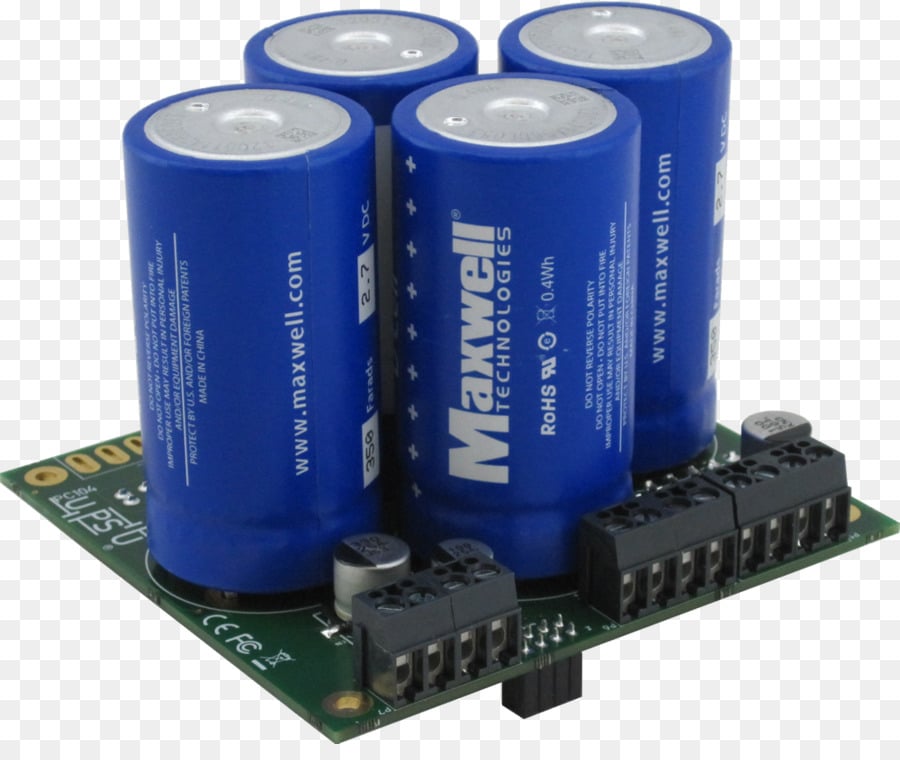Types and Top Applications of Supercapacitors
A supercapacitor is an electronic device that is capable of storing a large amount of electric charge. It is also known as ultracapacitors, super caps, and electric double-layer capacitors. At present, energy storage systems play an essential role in different fields such as electric vehicles, power systems, and many more.

Usually, supercapacitors are part of energy storage devices. They are proficient in storing 10 to 100 times more charge per unit volume than electrolytic capacitors and other conventional capacitors.
The supercapacitor has a high power density, is maintenance-free, and lasts for a long time. It consists of a large surface area of electrodes and a very thin dielectric through which it can achieve wide charge storage. When it comes to picking supercapacitors to power your products, choose specialist products like Cap-X Murata Supercapacitors manufactured by experts.
What Are The Types Of Supercapacitors?
- A double-layer capacitor consists of two electrodes, a separator, and an electrolyte. The electrolyte is a mix of positive and negative ions dissolved in water. On the other hand, the separator in the double-layer capacitor divides the two electrodes. Two opposite charges get built where the electrode surface and electrolyte solution meet. These opposite charges are called the two electric charge layers or double electric charge layers.
- The pseudo-capacitors can store electrical energy through an electron charge transfer between the electrode and electrolyte. It is attainable with Redox or the reduction-oxidation reaction, which arises when one atom gains or loses an electron. Then another atom loses or gains an electron. In pseudo-capacitors, oxidation-reduction takes place between an electrode and electrolyte solution.
- A hybrid capacitor progresses through the techniques of double-layer capacitors and pseudo-capacitors. These capacitors can store charge at the surface of the electrodes instead of within the electrodes.
What Are The Benefits Of Supercapacitors?
A supercapacitor has a very high energy density and power density. It can provide large power bursts for a short time. Also, it has a fast-charging ability and a longer shelf life than batteries.
The supercapacitor can operate across a wide temperature range (-40° to +70° degree centigrade). Even under such temperatures, its performance is highly reliable. Supercapacitors are eco-friendly. It can insert in a small space due to its small size. If overcharged, they do not explode like batteries.
The supercapacitor has a quick transient response. It has a low equivalent series resistance. Make sure to purchase supercapacitors that have a low ESR, like Cap-X Murata Supercapacitors. These devices are one of the most effective ways of dealing with a power gap. It could last for either a few seconds or a few minutes.
What Are The Applications of A Supercapacitor?
Often, a supercapacitor is used where there is a requirement for fast charging and discharging required. Here are some of its popular applications:
- It is in digital cameras for powering the built-in LED flashlight. Supercapacitors are also used in other electronic devices like laptops, computers, portable media players, smartphones, and tablets to stabilize the power supply.
- A supercapacitor is a segment of many electric vehicles.
- It is in defibrillators and cardiac pacemakers. It helps in controlling irregular heartbeats through electric current.
- Supercapacitors are also part of hybrid buses, elevators, cranes, and pump trucks.
- They manage to provide power backup to low-power devices like PC Cards and automated meter reading equipment.
- Supercapacitors are also part of many electrical tools, such as the cordless electric screwdriver.
- They are in many portable gadgets and devices too.
The Difference Between Supercapacitors And Batteries
Supercapacitors are known to be similar to batteries because they share the same structure. But there is one big difference.
In the case of a battery, chemical reactions occur between the electrolytic solution and the electrodes. However, in supercapacitors, only an electron movement takes place between the electrodes. It means that both have different properties and have their applications.